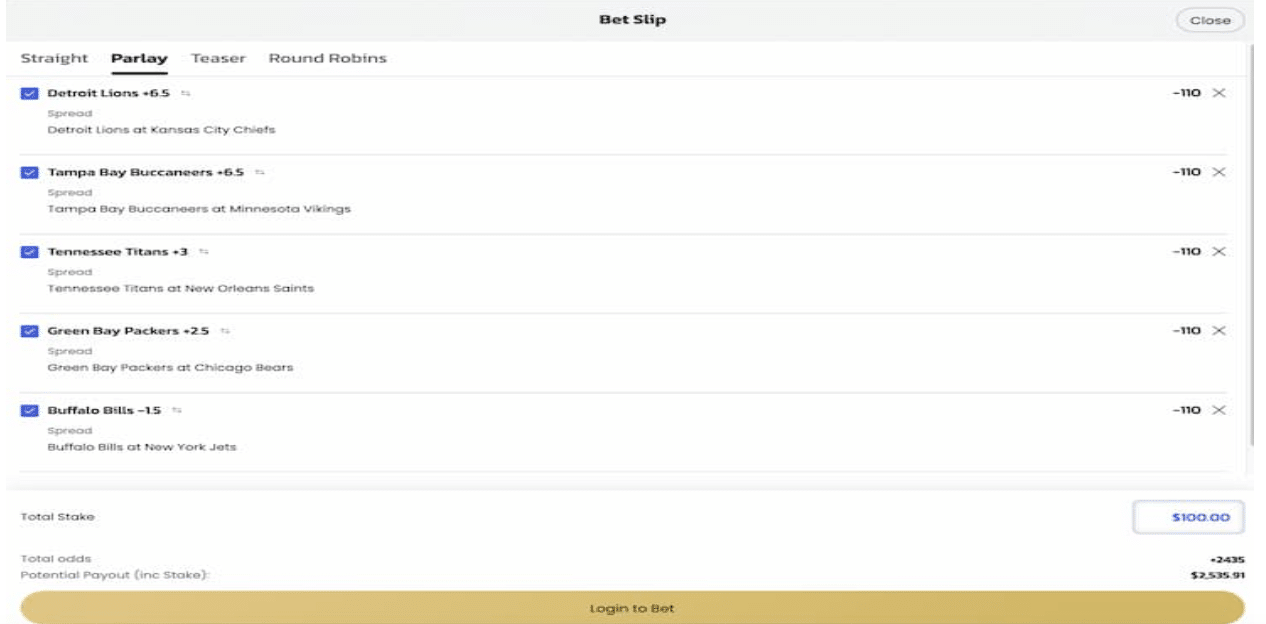A Guide To Vig Betting: Vig in Betting Explained 2024
Vig in sports betting refers to the amount of commission that the sportsbook charges to take a wager. Vig is short for vigorish, and is also known as the juice, cut, take, or margin. In casino gambling, it is known as the house edge.
The amount of vig applied can vary on different markets and sportsbooks. It is important to have an understanding of how it works, because it is a crucial part of how sports betting sites make money. Therefore, by extension, it can eat away at your own profits if you do not factor it into your sports betting activities. We will provide a detailed explanation of how vig betting works, how to calculate it, and how to beat it.
Vig & Odds Explained
Sportsbooks build vigorish into their betting odds, as it helps them generate a profit over the long term. As such, it is not charged separately for using their service, but instead factored into betting lines. This means you must calculate the vig yourself, as it is not laid out in simple terms.
This image shows the sports betting odds available on Super Bowl 58 at BetOnline which is our top-rated offshore US bookmaker: As you can see, it is offering -110 on the San Francisco 49ers to cover a -2 point spread, and -110 on the Kansas City Chiefs to cover a +2 point spread. This means:

- A $110 bet would be required to make a $100 profit on the 49ers covering the -2 spread.
- A $110 bet would also be required to net a $100 profit on the Chiefs covering the +2 spread.
When it comes to points spread betting, it is a 50:50 split, as there are only two outcomes. These two outcomes have been determined as equally likely based on the sportsbook’s research. As such, if an online sportsbook did not charge any vigorish, it would offer odds of -100. This would allow you to double your money if you placed money on the correct result.
However, the sportsbook would struggle to earn a margin and run a profitable business in this manner. That is why the odds in this example are -110 rather than -100. That extra $10 you need to pay to win $100 means you would need to win more than half of your bets at these odds in order to generate a long-term profit.
How To Calculate For Vig Betting
Of course, the vast majority of sports betting markets are not split evenly in odds terms like spread and totals. In these cases, it is more difficult to work out how much vig has been applied.
However, there is a formula we can use across the board to calculate vig:(Favorite odds/(Favorite odds + 100) x 100) x 100) + (100/(Underdog odds + 100) x 100) – 100 = the vig
Please note: do not include the minus sign (-) or use negative numbers in the favorite odds sections of the formula. If the odds are -100, then use 100. In other words, use the absolute value, not a negative one.
Let’s use BetOnline’s moneyline market odds on the aforementioned NFL game to calculate the vig in a favorite/underdog scenario:

As you can see from the screenshot above, the 49ers are slight favorites at odds of -130 to win Super Bowl 58, while the Chiefs are slight underdogs at odds of +110.
This means we would need to bet $130 to win $100 on the 49ers if our bet wins, or we would win $110 for every $100 that we stake on the Chiefs if they retain their title.
Inserting these odds into the vig formula gets us:
(130/(130 + 100) x 100) + (100/(110 + 100) x 100) – 100
Let’s break it down:
First up, it is best to think of the + in the middle as the center section of the formula. We can then work out each side first, so 130 divided by 230 times by 100 equals 56.52, and 100 divided by 210 times by 100 equals 47.62. These two amounts added together gives us a total of 104.14. However, we then need to deduct 100 to give us our vigorish percentage.
(56.52) + (47.62) – 100 = 4.14% vig.
Is The Vig Important?
Yes, the vig is worth considering when comparing bets and sportsbooks. Ultimately, you are likely to go with the best odds on offer for that particular market. However, if a sportsbook is consistently charging lower vig, then it is certainly worth keeping an eye on at the very least, as they are likely to offer better odds.
For this reason, advanced sports bettors seeking to maximize their potential profits should pay special attention to the vig. Small differences in vig and payouts can add up to huge amounts over the long run, especially when staking higher amounts.
How To Beat The Vig
Ultimately, it is very difficult to beat the vig, because this is a major part of how sportsbooks make money.
However, finding odds boosts and special promotions can help counter the vig. As always, only bet on these if you think they actually have a good chance of winning, or are reflective of good value. Otherwise, you are playing into the sports betting site’s hands once again.
In this sense, you could think of the vig in sports betting as a bit like a service charge at a restaurant. It is unavoidable, but your favorite Italian place may do half-price meals on certain days of the week. In effect, this could help minimize the service charge, or wipe it out completely. That said, you may not order a particular dish just because it is cheaper than others. And if you are still new to the sports betting, check out our guide on how to bet on sports.
FAQs
Does one sportsbook have the lowest vig?
The vig will vary between different sportsbooks, markets, and events. It is always best to do your own research to discover which sportsbooks are consistently applying less vig than others.
What is a typical vig for a pick’em bet?
A typical vig for a 50-50 wager would be around 4.54%. This makes a bet that, in implied probabilities terms, should be -100 become odds of -110. This is most common for spread and total betting, as most other markets will usually have a favorite and underdog.
Is vig the same as juice?
Yes, the vig (short for vigorish) is the same as juice. This is also known as the cut, take, margin, or house edge. Essentially, it is the amount that a sportsbook takes for a bet.
For vig betting, do offshore sportsbooks have less vig?
Yes, offshore sportsbooks often apply less vig. This is because these sports betting sites do not pay taxes or fees in the United States, and therefore are likely to have lower overhead costs. We recommend BetOnline as the best regulated offshore sportsbook.



 Nick Pappas
Nick Pappas 

 Sergio Zammit
Sergio Zammit 